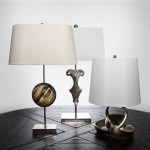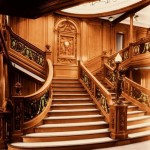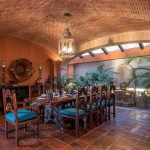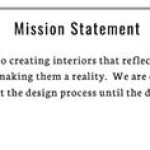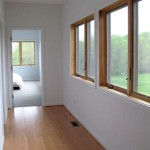Finding the Best Interior Decorators: A Comprehensive Guide
Interior decoration plays a vital role in shaping the aesthetic appeal and functionality of a space. Whether it's a residential home, a commercial office, or a retail establishment, well-executed interior design can significantly impact mood, productivity, and overall perception. Consequently, selecting the right interior decorator is a crucial decision. This article explores key considerations when searching for the best interior decorators and provides a framework for evaluating potential candidates.
The field of interior decoration encompasses a wide range of services, from space planning and color palette selection to furniture arrangement and accessory procurement. The "best" interior decorator is subjective and depends on specific project requirements, budget constraints, and desired aesthetic outcomes. However, certain fundamental attributes consistently distinguish exceptional decorators from the average ones.
The first step in finding the right decorator involves clearly defining the project scope. What specific areas require attention? What is the desired style or theme? What is the allocated budget? Answering these questions allows for a more targeted search and facilitates effective communication with potential decorators.
Understanding the Difference Between Interior Design and Interior Decoration
It's crucial to differentiate between interior design and interior decoration, as the terms are often used interchangeably but represent distinct professions. Interior design typically involves more comprehensive planning, including structural modifications, electrical layouts, and plumbing considerations. Interior decorators, on the other hand, primarily focus on the aesthetic elements of a space, such as color schemes, furniture placement, and accessory selection. While some professionals may possess expertise in both areas, understanding the nuances allows for a more informed hiring decision.
Interior designers often possess formal training in architecture or interior design and may be licensed or certified. Their skillset extends beyond aesthetics to encompass building codes, space planning principles, and accessibility regulations. Interior decorators, while not always formally trained, typically have a strong understanding of design principles and a knack for creating visually appealing environments.
For projects involving significant structural alterations or renovations, an interior designer is generally the more appropriate choice. For projects focused primarily on aesthetic improvements and furniture arrangement, an interior decorator may suffice.
Key Attributes of Exceptional Interior Decorators
Several key attributes consistently distinguish exceptional interior decorators from their peers. These qualities extend beyond purely aesthetic considerations and encompass professionalism, communication skills, and project management capabilities.
A keen eye for detail is paramount. The ability to discern subtle nuances in color, texture, and form is essential for creating harmonious and visually appealing spaces. Exceptional decorators possess a strong understanding of design principles, including balance, proportion, and rhythm, and apply these principles effectively in their work.
Effective communication is equally crucial. The best decorators are adept at listening to clients' needs and translating their preferences into tangible design solutions. They provide clear and concise explanations of their design proposals and actively solicit feedback throughout the project lifecycle.
Strong project management skills are also essential. Decorators must be able to manage budgets effectively, adhere to timelines, and coordinate with various tradespeople, such as painters, carpenters, and electricians. A well-organized and efficient decorator can ensure that projects are completed on time and within budget.
Furthermore, adaptability is a valuable asset. Decorators should be able to adapt their design approach to suit various styles, budgets, and client preferences. A rigid adherence to a single design aesthetic can limit their ability to create truly personalized and tailored spaces.
Evaluating Potential Interior Decorators
The evaluation process should involve several steps, including reviewing portfolios, checking references, and conducting in-person interviews. A comprehensive assessment allows for a more informed decision and increases the likelihood of a successful project outcome.
Portfolios provide a visual representation of a decorator's past work and stylistic preferences. Carefully examine the portfolio to assess the quality of the work, the range of styles, and the attention to detail. Look for projects that resonate with your personal aesthetic and project requirements.
References offer valuable insights into a decorator's professionalism, communication skills, and project management capabilities. Contact previous clients and inquire about their overall experience working with the decorator. Specifically, ask about their ability to listen to feedback, manage budgets effectively, and adhere to timelines.
In-person interviews provide an opportunity to assess a decorator's personality, communication style, and understanding of your project requirements. Prepare a list of questions in advance and actively listen to their responses. Pay attention to their ability to articulate their design ideas, explain their process, and address any concerns you may have.
During the interview, discuss the project scope, budget, and timeline in detail. Obtain a written proposal outlining the services to be provided, the associated fees, and the payment schedule. Carefully review the proposal and address any ambiguities before proceeding.
It's also important to inquire about the decorator's experience with similar projects. If you're renovating a kitchen, for example, seek out decorators who have a proven track record of successful kitchen renovations. Their experience in the specific area can significantly improve the quality and efficiency of the project.
Moreover, understanding the decorator's design process is crucial. How do they approach a new project? How do they incorporate client feedback? How do they handle unexpected challenges? A clear and well-defined process demonstrates professionalism and ensures a smoother project execution.
Finally, consider the decorator's professional affiliations and certifications. Membership in professional organizations, such as the American Society of Interior Designers (ASID), can indicate a commitment to ethical practices and ongoing professional development. While not mandatory, certifications can provide additional assurance of competence and expertise.
By carefully considering these factors and conducting a thorough evaluation, individuals can significantly increase their chances of finding the best interior decorator for their specific needs and achieving their desired aesthetic outcomes.

2024 The World S Top 10 Interior Designers

World S Top 10 Interior Designers That Will Blow Your Mind Inspirations Essential Home

World S Top 10 Interior Designers That Will Blow Your Mind Inspirations Essential Home

World S Top 10 Interior Designers That Will Blow Your Mind Inspirations Essential Home

Top 100 Interior Designers Of The World Part 1 Inspiration Design Books Blog

2024 S 5 Best Interior Designers Of The World Inspiration Ideas Delightfull Unique Lamps

World S Top 10 Interior Designers That Will Blow Your Mind Inspirations Essential Home

Come To Check The World S Top 10 Interior Designers 2024

7 Best Interior Designers Based In Russia

Top 10 Houston Interior Designers Near Me Decorilla



